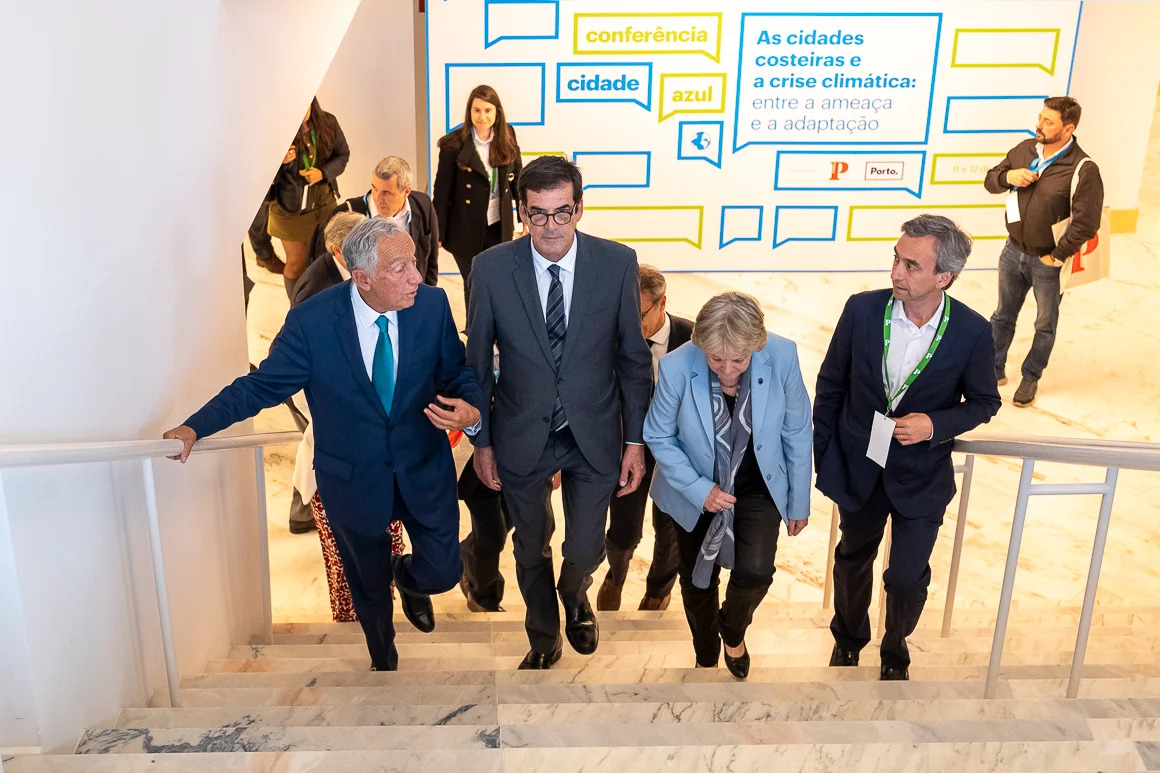
Porto is reducing its ecological footprint and becoming more sustainable
15/05/2023
Through the course of two days, Porto was mentioned, many times, as one of the most sustainable cities in the country, where some municipal programs promote habits that lean towards reducing this ecological footprint. This happened during the conference “Cidade Azul” promoted by the City Hall and the newspaper Público, at Super Bock Arena – Pavilhão Rosa Mota.
This Friday, before the final intervention, carried on by the President of the Republic, Marcelo Rebelo de Sousa, the mayor of Porto City Hall participated in a panel (“As políticas”), inserted in a more general debate under the theme “Coastal towns and the climate crisis: from a threat to the urgency of adaption”.
It was there, accompanied by Elena Espinosa, counsellor of the municipality of Vigo and ex-minister of Agriculture in Spain – (Axel Schmidt Grael, mayor of Niterói (Brazil), participated through videoconference) – and moderated by David Pontes, associate Director of Público, that Rui Moreira guaranteed that it is “necessary to change habits. [It is necessary] for young people to teach their elders and for there to be more environmental training in schools”.
“We must adjust the cities to that which is a new reality and that must go through two fundamental lines of action: one is to mitigate what we cannot prevent anymore. We are living through a profound alteration of climate conditions”, said the politician, using as an example the action of the Municipality in Parque da Asprela, inaugurated this year: “Water retention basins were created. Not only to capture the water in order not to lose it completely, but also so that it does not cause any damage”.
On the other hand, the new Plano Diretor Municipal (PDM) added a set of measures that predicts, in many coastal areas, closer to the sea “an impossibility to make more buildings. Measures must be taken because the sea level has risen in 20 centimetres”, he added.
Regarding the ecological footprint, Rui Moreira has also presented demonstrative examples of its reduction in the city. “When we arrived at the leadership of the city, non-billed water was around 23%, 24%. Right now, it is at 13.5% and we’ll accomplish 10%”, he said, revealing that, on the other hand, municipal houses were given more energy efficiency: “Not only did we reduce the necessity of energy consumption to heat houses, but we also alleviated the bill that families have to pay. Today, we are trying something daring, using the roofs of those houses to produce photovoltaic energy”.
On the other hand, he stressed that “in Porto, we have been able to separate circa 42% of waste. Right now, less than 1% of it goes to a landfill. The rest is used for energy production”.

